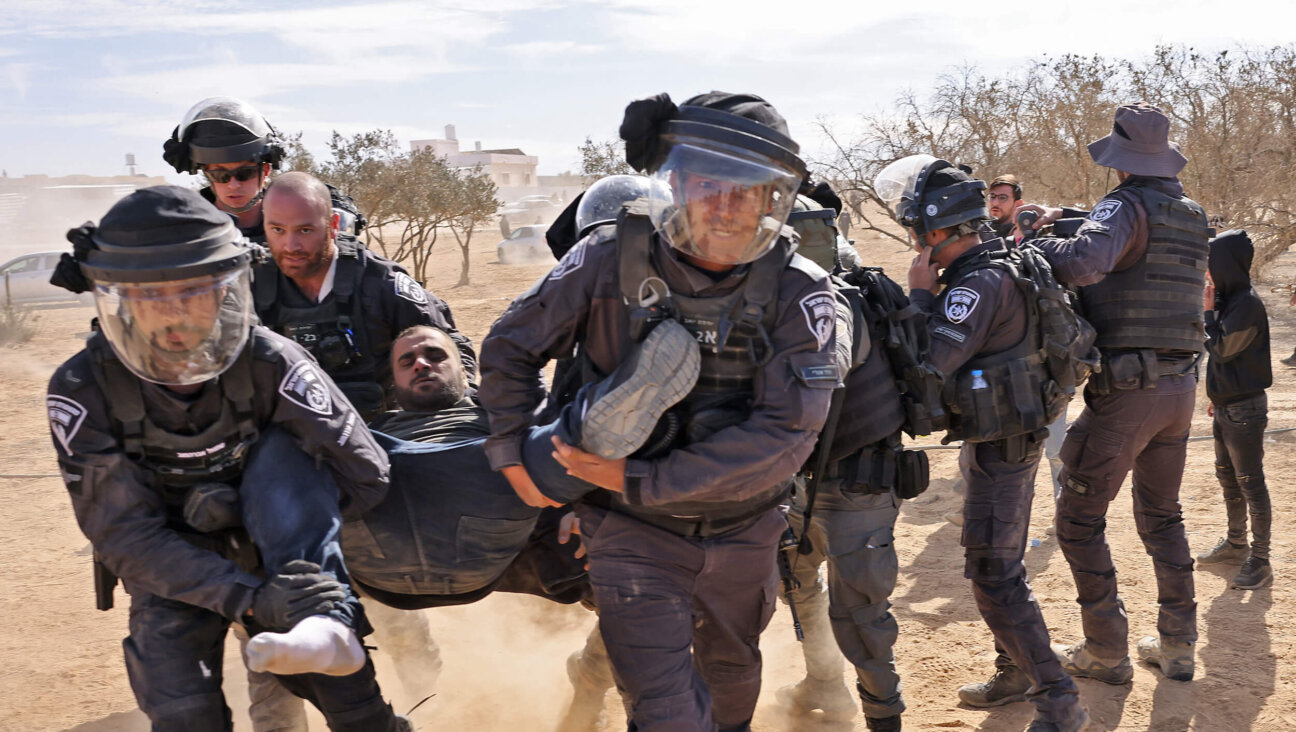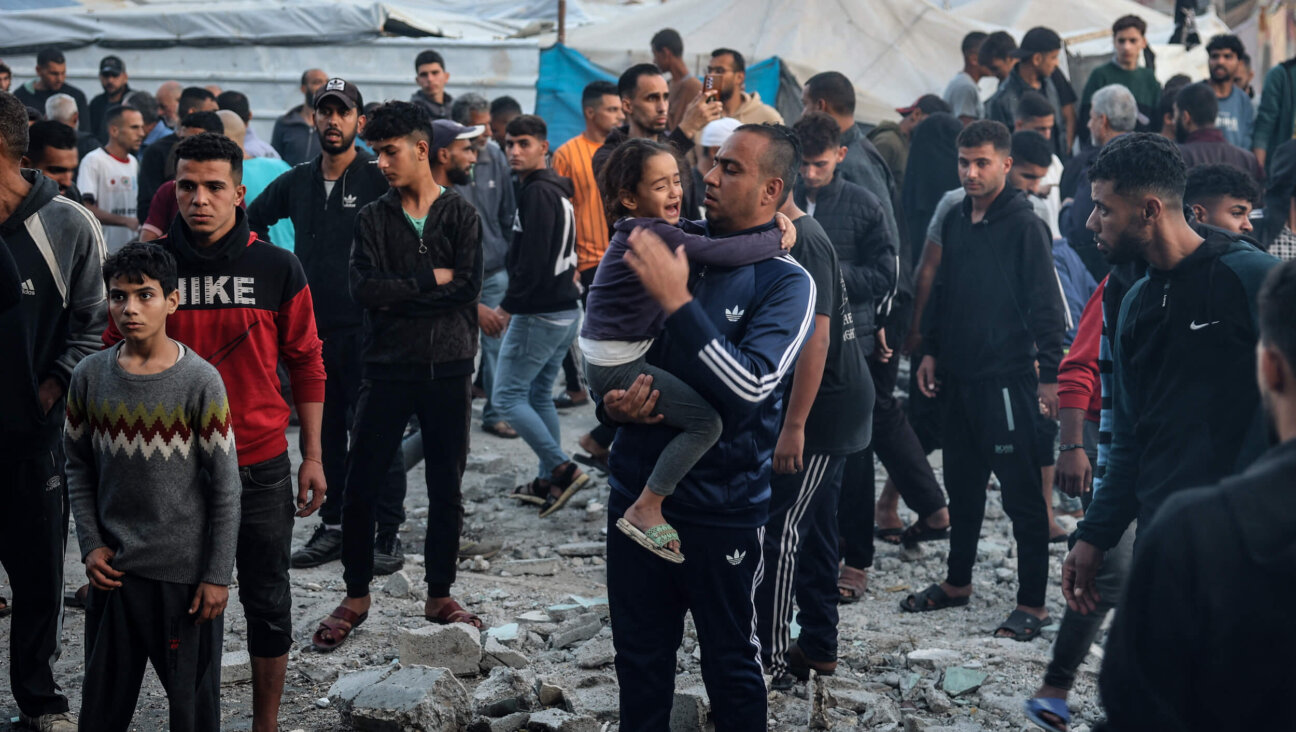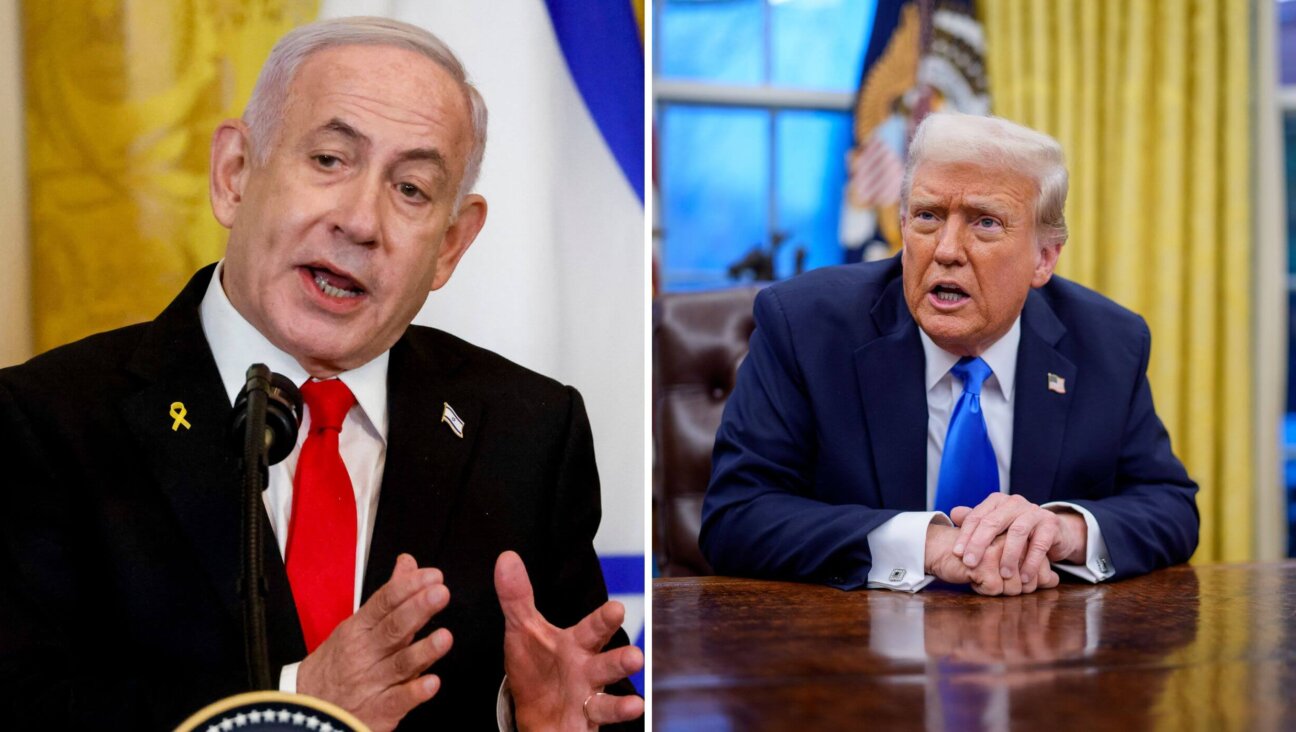Goldstone Throws Down the Gauntlet
Israel’s international isolation and vulnerability is several degrees deeper following the September 15 release of a United Nations war crimes report on the conduct of last winter’s Gaza war. How serious the damage will be depends in considerable measure on how Israel chooses to respond. Initial signs are not encouraging.
The report offers a 575-page mountain of closely documented, seemingly credible charges against Israel of “actions amounting to war crimes, possibly crimes against humanity” during its 22-day military campaign against Hamas. The mere publication of the document is certain to weaken Israel’s defenders in the ongoing Middle East war of words. More worrying to Jerusalem, the findings could enable diplomatic and legal actions against Israel and its leaders, up to and including criminal proceedings, further deepening Israeli isolation.
The report was produced by a four-member fact-finding commission appointed by the U.N.’s Geneva-based Human Rights Council and headed by South African jurist Richard Goldstone. The panel interviewed 188 persons and reviewed some 22,000 documents and photos. It also conducted its own on-the-ground forensic investigations, evident in the text, examining structural damage, blast patterns and more.
Israel refused to cooperate, answer questions or even permit the panel to enter Israel. And the report shows it, repeatedly citing a lack of Israeli evidence that hampers its findings. Israel’s demurral tilts the field toward the Palestinian case, with no Israeli rebuttal except what the investigators found in published Israeli documents.
Israel’s Foreign Ministry immediately dismissed the entire report as a biased screed that “writes a new and shameful chapter in the history of international law” and doesn’t merit a response.
This dismissive Israeli strategy has worked in the past. Countless reports have attacked Israel over the years, and while some have inflamed public opinion, none has resulted in concrete punishment. That’s been due partly to obvious bias among the accusers, and partly to diplomatic cover from Washington and other friendly powers.
Some critics are charging that Israel’s dismissal of the investigation amounts to a silent admission of guilt. That underestimates Israel’s deep suspicions of the U.N. and its affiliates, particularly the Geneva-based Human Rights Council, which has an egregious record of singling out Israel. Nor is Israel alone in its contempt for the rights panel. Even U.N. Secretary General Ban Ki-moon and his predecessor, Kofi Annan, have publicly criticized its bias.
This report won’t be so easy to wave away, however. Whatever its sponsorship, it will ultimately be judged by its content. Despite the original, biased mandate from the Human Rights Council, Goldstone demanded and got a broader mandate to probe both Israeli and Palestinian conduct. Of 425 pages devoted to examining specific actions — as opposed to legal principles, investigators’ methods and recommendations — about 70 pages are devoted to Palestinian actions. They include rocket attacks on Israel, torture of domestic opponents and the fate of Gilad Shalit. Reading those pages, it’s clear that these portions would be lengthier and harsher if Israel had presented its own case or at least had let the panel enter Israel. But Israel didn’t, and it shot itself in the foot.
Some of Israel’s defenders further hurt their case by accusing Goldstone of ideological bias. The Jerusalem-based NGO Monitor claims Goldstone is tainted by his longstanding ties to the New York-based group Human Rights Watch, which is accused by many of Israel’s supporters of anti-Israel bias.
But Goldstone isn’t an easy target. One of the world’s most respected war-crimes experts, he served as chief prosecutor of the U.N. International Criminal Tribunals for Rwanda and the former Yugoslavia. He’s also a leading figure in international Jewish affairs, past president of the World ORT Union and an honorary member of the board of governors of Hebrew University. His daughter Nicole, interviewed in fluent Hebrew on Israel Army Radio, insisted he agreed to lead the investigation partly to prevent an anti-Israel hatchet job.
The report offers detailed, convincing accounts of incidents that suggest serious Israeli wrongdoing. Israel is described as shelling hospitals and a U.N. refugee center, shooting Palestinians waving white flags and destroying civilian targets such as a chicken farm and a sewage treatment center. All these are depicted as avoidable if not deliberate.
The extent of the report’s damage to Israel will depend in large part on Israel’s response. The report details severe allegations of misconduct by Israeli forces. It also condemns aspects of Israel’s broader conduct in the territories, such as imprisoning Palestinian Authority legislators and blockading Hamas-ruled Gaza. The allegations are harsh, but they are specific, and so are the remedies Israel is called upon to undertake.
The report does not brand Israel a criminal or renegade state. It does not forbid Israel from acting to defend itself. Rather, it cites particular Israeli actions that appear to be illegal, and it calls for Israel to investigate and address its own actions. Only if Israel fails to act within a given time frame — the report suggests three months — is the U.N. urged to act, beginning with a referral to the International Criminal Court.
The actions demanded of Israel aren’t easy, but they’re not insuperable. Above all, Israel is called on to undertake a “credible” war-crimes investigation. The international court can’t to take a case unless the accused country has refused to investigate on its own. A “credible” investigation, it says, must be prompt and independent — not having the military investigate itself, as Israel has done.
Some Israeli analysts say Israel needn’t fear legal fallout. First, they note, U.N. adoption of this report would cast a long shadow over Russia’s anti-terrorist actions in Chechnya and America’s in Iraq and Afghanistan. That’s a strong point, although international institutions have overcome such scruples in the past to condemn Israel and ignore worse offenders.
Analysts also say the international court won’t intervene because Israel never signed the treaty creating the court and therefore is outside its jurisdiction. That’s wrong. Yes, the court can intervene directly only in nations that signed the treaty. But other nations can be indicted, too, if the Security Council votes to refer the case. Washington would probably veto a Security Council action. Even so, the fallout from the report could still be severe. A wave of private lawsuits may follow in Britain, Spain and other countries that accept the doctrine of universal jurisdiction, or legal action against foreigners for crimes committed abroad.
Universal jurisdiction has already kept some Israeli officials from taking some important trips. So far, Israel’s top leaders haven’t fallen under a quarantine comparable to, say, Sudan’s Omar al-Bashir. Now, however, that sort of isolation is a real threat.
Contact J.J. Goldberg at [email protected] and visit his blog.
The Forward is free to read, but it isn’t free to produce

I hope you appreciated this article. Before you go, I’d like to ask you to please support the Forward.
Now more than ever, American Jews need independent news they can trust, with reporting driven by truth, not ideology. We serve you, not any ideological agenda.
At a time when other newsrooms are closing or cutting back, the Forward has removed its paywall and invested additional resources to report on the ground from Israel and around the U.S. on the impact of the war, rising antisemitism and polarized discourse.
This is a great time to support independent Jewish journalism you rely on. Make a gift today!
— Rachel Fishman Feddersen, Publisher and CEO
Support our mission to tell the Jewish story fully and fairly.
Most Popular
- 1

Fast Forward Ye debuts ‘Heil Hitler’ music video that includes a sample of a Hitler speech
- 2

Opinion It looks like Israel totally underestimated Trump
- 3

Culture Is Pope Leo Jewish? Ask his distant cousins — like me
- 4

Fast Forward Student suspended for ‘F— the Jews’ video defends himself on antisemitic podcast
In Case You Missed It
-

News In Edan Alexander’s hometown in New Jersey, months of fear and anguish give way to joy and relief
-

Fast Forward What’s next for suspended student who posted ‘F— the Jews’ video? An alt-right media tour
-

Opinion Despite Netanyahu, Edan Alexander is finally free
-

Opinion A judge just released another pro-Palestinian activist. Here’s why that’s good for the Jews
-
Shop the Forward Store
100% of profits support our journalism
Republish This Story
Please read before republishing
We’re happy to make this story available to republish for free, unless it originated with JTA, Haaretz or another publication (as indicated on the article) and as long as you follow our guidelines.
You must comply with the following:
- Credit the Forward
- Retain our pixel
- Preserve our canonical link in Google search
- Add a noindex tag in Google search
See our full guidelines for more information, and this guide for detail about canonical URLs.
To republish, copy the HTML by clicking on the yellow button to the right; it includes our tracking pixel, all paragraph styles and hyperlinks, the author byline and credit to the Forward. It does not include images; to avoid copyright violations, you must add them manually, following our guidelines. Please email us at [email protected], subject line “republish,” with any questions or to let us know what stories you’re picking up.
















